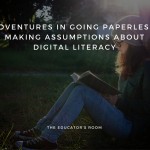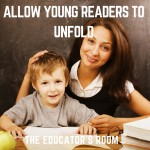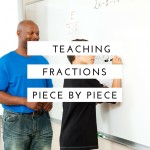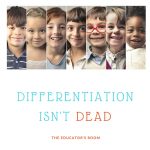I first met Michael Tubbs when he was a freshman in college at our annual African American Student Union (AASU) trip to Stanford’s High School Black Student Union (BSU) Conference. His raw, real, and relatable personality, coupled with a clearly home-taught respect, gave me a glimpse into the incredible future he had before him. I had no doubt he would make a lasting impact on the world in some way. I followed his journey over the years, watching him be elected to City Council, and later elected Mayor of Stockton, California in 2016 at 26 years old. He was Stockton’s first African American Mayor and the youngest Mayor of any major city in American history. When I heard he had written an autobiography, I immediately pre-ordered it and decided to dive into it first on Audible.
Listening to The Deeper the Roots in Tubb’s own recognizable voice, with his unique cadence, emotion, and passion I have become familiar with, made me feel like I was sitting next to one of my own alumni, listening to the journey of his life in genuine awe that led to inevitable inspiration. His story of “progress and pitfalls” is one that so many will be able to relate to (4). From students to teachers, to aspiring community leaders and activists, this book has something for everyone. It is so important to experience the incredible literary work that is The Deeper the Roots.
Here are my top five (5) reasons this book is a must-read.
#1 – Relatability.
“Grace is both necessary and sufficient to power us through hard times” (Tubbs, 22).
If this pandemic has taught us nothing else, it is the importance of having both grace and mercy. Students will relate to the grace and mercy they desire from their parents, counselors, and educators, as well as learn so many valuable lessons for the grace and mercy they will inevitably have to learn to give to themselves.
“I rejected the idea that factors outside of my control were destined to ruin my life” (Tubbs, 38).
I have encountered literally hundreds of students who think that their circumstances are things they cannot overcome. In the same way, I have met educators who think that the last few years have caused irrefutable damage to education that cannot be repaired. Sadly, I have also met a few community leaders and activists that believe that change is not possible due to the overwhelming factors that fight to stifle it. The Deeper the Roots challenges all of these notions, assumptions, and beliefs, and shows how faith, hope, and determination can truly “upset the setup”.
“I started my speech by admitting that I was not in fact a perfect student and that I had just as much in common with the kids in detention as I did with the straight-A students…I ended by telling them that, like Tupac, I was crazy enough to believe that roses could grow from concrete” (Tubbs, 58).
Of course, seeing the multiple references to Tupac was something I could relate to, having taught the life, poetry, and music of the artist, actor, and activist since 2002. More importantly, the theme of “succeeding in life despite the hand you were dealt” is one that is pervasive throughout the text, and one so many will be able to relate to on so many levels.
“That roses shouldn’t have to grow from concrete, but they can and will, while we dig up all the concrete and plant rosebushes” (Tubbs, 239).
This call for systemic change is one that resonated with the advocate for change inside me that I am constantly encouraging others to embrace. The varied instances of “rage” he explores in the Epilogue are one’s frustrated parents, students, educators, community leaders and activists will relate to in the same I have in all of these roles at some point in my life. His exploration of “rage” is just one of many moments of transparency that permeate The Deeper the Roots.
#2 – Transparency
“We are all more than the worse thing we’ve done” (Tubbs, 199).
As parents, we often forget what it was like to make mistakes. Having grown up in the “Pre-Internet” and “Pre-Social Media” era, I am thankful my many mistakes and pitfalls were not broadcasted for the world to see and judge! This generation must look around every corner and keep one eye open for the potential of the seemingly never-ending documentation and exposure. I cannot imagine what it must have been like to have Tubb’s experience of being at the height of success, have a documentary (True Son, 2004) made about your rise, and to have the potential to lose it all for a mistake in judgment we all could fall victim to at any moment.
“You’re human, so sometimes you’ll make choices you shouldn’t make, and this is what you do: You own it. You say, ‘I’m sorry, I was wrong.’ You don’t make excuses…You get help. You make sure it doesn’t happen again and you forgive yourself. You forgive other people. You use your mistakes as a chance to help others” (Tubbs, 199).
The ways in which Tubbs owned up to his mistake can teach the importance of regret, repentance, and reconciliation that is so important in all of our journeys. Life is never perfect, and neither are we, no matter how much we strive to be.
“My DUI forced me to be realistic about my own behavior…It was humbling for me to see how one mistake made in a split second could endanger everything I’d worked for. We’re all just one bad choice away from ruin. We’re all human” (Tubbs, 197).
Everyone can relate to having made bad choices. The theme of “second chances” is one that I think is not discussed enough. Tubb’s story of not allowing your past, nor your mistakes, to define you is one that also lends itself to transparent discussions students need to have as they attempt to explore, develop, and accept their own identities.
#3 – An Exploration of Identity
“It was the only school in the entire country that housed the pre-International Baccalaureate (IB) program, a rigorous college preparatory curriculum” (Tubbs, 30).
I teach at a school that has become the only one in our district with an IB program. I know firsthand that my students will be able to relate to the “paradox” he discusses in The Deeper the Roots. Our school also has a “clashing” of identities when it comes to “the general population students” versus the IB students (Tubbs, 3). This “separation” could be the content for an entire article on issues many would not be potentially ready to tackle, but the focus on the theme of “dueling identities” is one that many who are not familiar with the nuances of different educational opportunities afforded in a school could relate to.
“Now, I saw that to actually understand my country was to understand its impact everywhere” (Tubbs, 89).
His journey in his studies abroad was eye-opening, to say the least. Reading this section and learning about his travel to not only South Africa but to El Salvador took me back to my own travels abroad in college. I lived and studied in Cuernavaca, Morelos Mexico, and well as at Middlesex University in London, England. I, too, learned what it meant to be American before I was seen as Black. Even deeper, in my case, I learned what it meant to be Californian first, and in many circles, from the Northern Bay Area first. All of the stereotypes of the “hyphy” Hip-Hop movement, coupled with being allegedly “rich” in the “always sunny” California Bay Area made me a commodity. Traveling abroad taught me as much as Tubbs when it came to learning about the plethora of identities that many put on me, but ones I did not acknowledge for myself until I learned to see myself through the eyes of others. Like Tubbs, I did not understand what it meant to be truly American until I traveled and lived outside of America, which is why I continually encourage my students to study abroad if and when the opportunity presents itself.
“I saw myself in a new light while abroad. In Cape Town I came to grips with the fact that I, too, had privilege, at least in the South African context, There I was not African American; I was American Black” (Tubbs, 191).
The discussion of “privilege” is such a polarizing topic these days, and to hear it from a Black male may seem odd to some, but not to me. I often tell my students that privilege comes in many forms and does not always have to be based on race, ethnicity, or skin color. The socioeconomic, religious, gender, cultural and educational “privileges” discussed in The Deeper the Roots could be the subject of an entire semester’s lesson.
#4 – Advocacy
“As Stanford and my work with the Phoenix Scholars taught me, talent and potential are universal, but resources and opportunity are not” (Tubbs, 229).
Advocacy has been fueled by so many factors in the last several years. My own journey to advocate for myself as a parent and educator, for my son as a child with special needs, and for my students with the incredible potential they all possess has been heightened to a level I did not think I had inside of me. Books like The Deeper the Roots have further inspired this lifelong mission. I read Tubb’s story of having the odds stacked against you and saw the faces of my students who have so much talent and potential, but only need the opportunity and resources to be able to see that talent reach its full potential. If only being afforded the opportunities many have in life, not limited to those surrounding finances and education, my students would inevitably be successful in any and everything they set their minds to accomplish.
“People assume that the status quo is the way it is because the question has been asked and answered, but often, the question never even has been raised” (Tubbs, 175).
Part of advocacy is asking questions that some might either be too afraid to ask or might not even think to ask. Why did it take a pandemic to allegedly fully fund education? Why did it take a pandemic to peel back the layers of the inequities in a system that seems designed to maintain the status quo? Why did it take a pandemic to highlight the importance of a true work/life balance that does not seem to exist in America? These and other questions are ones among many others that The Deeper the Roots has birthed in me.
“Teaching was a labor of love, both fulfilling and draining” (Tubbs, 184).
We all can agree that teaching is a form of advocacy. And no one would argue that teaching is a labor of love, with an emphasis on the “labor.” Many who enter the teaching profession often underestimate the level of “draining” they will experience, but if you can make it through the first few years, the level of fulfillment is indescribable. The fact that Tubbs was a teacher makes his story even more relatable.
“Both the dais and the classroom taught me that charity was not justice and programs were not policy” (Tubbs, 187).
This quote stood out to me as I have just entered the world of education policy in the last two years. It took me over two decades in education to understand that lasting systemic change can only occur at the policy level. Having a student as a representative on the school board has opened my student’s eyes to the importance of policy as well. I am hoping that both of our experiences, as well as the ones discussed in The Deeper the Roots, will inspire others to take a deeper look into the impact education policy has on us all. I, for one, and inspired to continue that journey.
#5 – Inspiration
Tubb’s campaign for mayor was much like the story of David “a young, inexperienced shepherd boy who went up against the giant that was threatening his community” (Tubbs, 137).
Many of my students see themselves as “less than,” unqualified, and sadly, sometimes even unworthy. Tubb’s discussion of his Christian faith is sprinkled with Biblical allusions throughout The Deeper the Roots. He skillfully weaves Hip-Hop and The Bible in a way that people of many differing backgrounds, beliefs, and religions will undoubtedly find to be digestible, skillful, and relatable. Like many of my students who are fighting against the status quo, Tubbs shows how poverty, single parenthood, predispositions to addiction, and other generational curses do not have to be the determining factor in the future trajectory of one’s life.
“I hoped that by sharing my story I was liberating them to create their own” ( Tubbs, 120).
There are so many reasons why educators from many levels should include The Deeper the Roots into their curriculum. I can envision it being taught in both high school and college-level courses for students and educators alike. The layers upon layers in this pivotal work that can be explored, analyzed, and dissected provide an abundance of lessons that can be studied from so many different critical perspectives. This book has inspired me on so many levels. I have been inspired to further amplify my own voice as a parent, teacher, educator, and advocate., while I continue to strive to instill the desire in my students to find their own voice, to find their own self advocation, and to find their own way to “upset the setup.”






